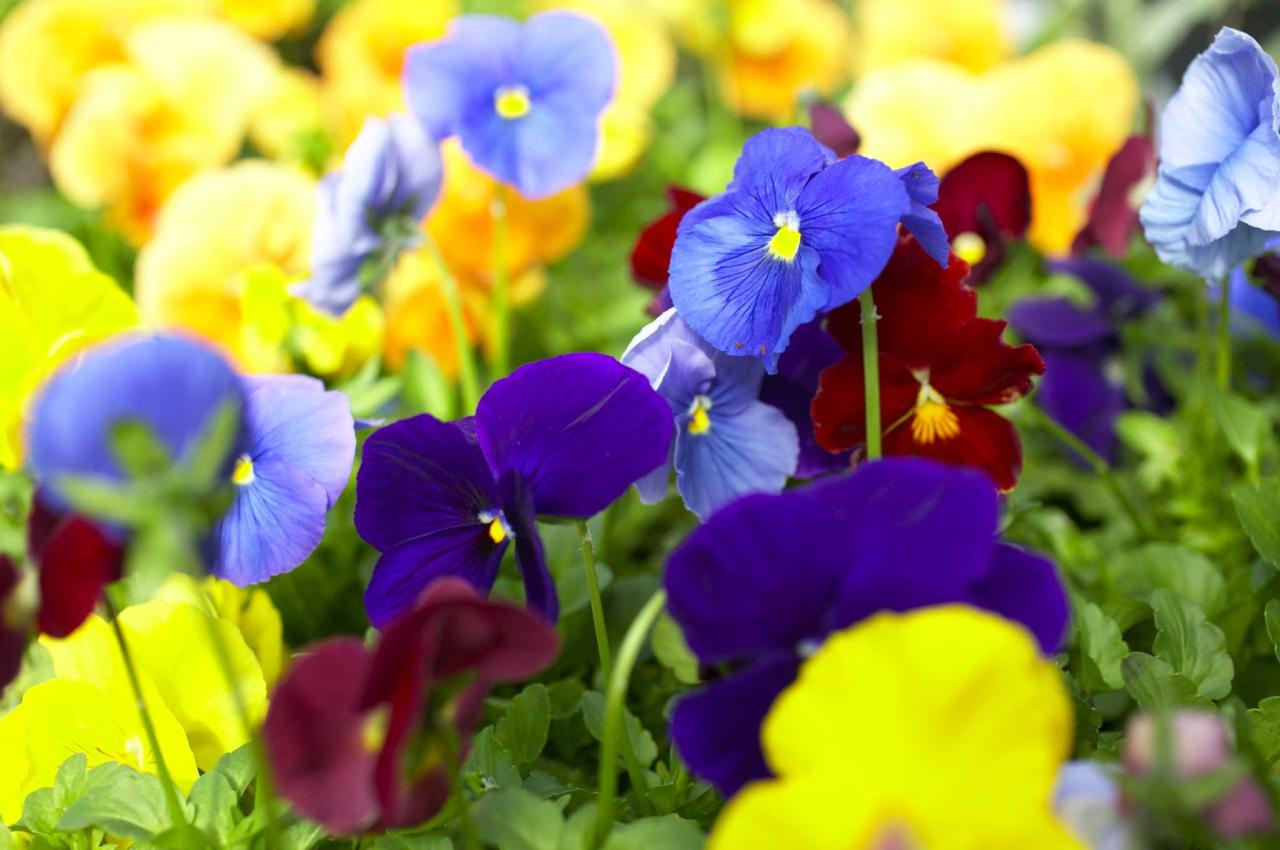Pansies are beloved for their vibrant colors and charming faces. If you’re looking to grow pansies from seeds, one of the first questions you might have is, “How long do pansy seeds take to germinate?” Understanding the germination process can help you plan your gardening schedule and ensure you have beautiful blooms in your garden. In this comprehensive guide, we’ll explore the germination timeline of pansy seeds, ideal conditions for growth, and some tips for successful planting.
Understanding Pansy Seeds 🌱

Pansies (Viola tricolor var. hortensis) are hardy annuals that thrive in cooler temperatures. They are well-known for their diverse color palette, ranging from soft pastels to bold primary shades. Pansy seeds are relatively small and can be sensitive to their growing environment.
The Germination Timeline
Pansy seeds typically take between 7 to 14 days to germinate, depending on several factors such as temperature, moisture, and light conditions.
Day-by-Day Germination Process, How Long Do Pansy Seeds Take To Germinate
| Day | Activity | Germination Notes |
|---|---|---|
| 1-2 | Seed Sowing | Plant seeds in a well-draining seed-starting mix. |
| 3-5 | Moisture Maintenance | Keep the soil consistently moist but not soggy. |
| 7 | Initial Germination | Some seeds may start to sprout. |
| 10-14 | Final Germination | Most seeds will have germinated; monitor for growth. |
Optimal Conditions for Germination
For successful germination, it is crucial to provide the right conditions for pansy seeds. Here are the key factors to consider:
Temperature
Pansy seeds prefer cooler temperatures for germination, ideally between 60°F and 70°F (15°C to 21°C). Higher temperatures can delay germination or inhibit growth, while cooler temperatures can enhance the process.
Moisture
Moisture is essential for germination, but too much can lead to rot. The soil should be kept moist but not overly saturated. It’s advisable to mist the seeds gently to maintain the right moisture level without washing them away.
Light Exposure
While pansy seeds do not require light to germinate, providing bright but indirect light can help seedlings develop stronger and healthier. A south-facing window or a grow light can work well.
Planting Pansy Seeds
Knowing how to plant pansy seeds correctly will set the foundation for successful germination. Here are some tips:
Choosing the Right Soil
Opt for a high-quality seed-starting mix that offers good drainage. Avoid using garden soil as it can compact and hinder seed germination.
Planting Depth
Seeds should be sown on the surface of the soil and lightly pressed down. They need light to germinate, so do not bury them too deeply.
Spacing the Seeds

Plant the seeds about 1 inch apart to prevent overcrowding. This will allow adequate air circulation and light exposure once the seedlings begin to sprout.
Caring for Germinating Pansy Seeds
Once the seeds have been planted, consistent care is crucial for their growth. Here are some essential care tips:
Watering
Water the seeds regularly but avoid overwatering. Checking the soil moisture daily can help you assess when your pansies need more water.
Thinning Seedlings
When the seedlings reach about 2 inches in height, it’s important to thin them out. Remove the weaker seedlings, leaving the strongest ones to develop further. This allows the remaining plants to thrive without competition.
Fertilizing
After the seedlings have developed their first true leaves, you can introduce a diluted liquid fertilizer. This will provide the necessary nutrients for strong growth.
Transplanting Pansies
Once your pansy seedlings have grown to about 4-6 inches tall and have a robust root system, they are ready to be transplanted outdoors.
Timing for Transplanting
Timing is key when transplanting pansies. Ideally, they should be moved outdoors when the nighttime temperatures are consistently above 32°F (0°C).
Choosing a Suitable Location
Pansies prefer partial to full sun. Choose a location in your garden that receives at least 6 hours of sunlight a day.
Common Issues During Germination
Even with the right care, you may encounter some challenges while germinating pansy seeds. Here are a few common issues and solutions:
Seeds Not Germinating
Ensure that you are providing the right temperature and moisture levels. If the soil is too dry or too wet, this could affect seed germination.
Seedlings Stretching (Etiolation)
If seedlings are growing tall and spindly, they may not be getting enough light. Consider moving them to a brighter location or adjusting your grow lights.
Pest Issues
Keep an eye out for pests such as aphids or fungus gnats, which can affect seedling health. Using organic pest control methods can help maintain a healthy growing environment.
Conclusion: How Long Do Pansy Seeds Take To Germinate
Growing pansies from seeds can be a rewarding experience, bringing a burst of color to your garden. With proper care, attention to detail, and understanding the germination timeline, you’ll be well on your way to cultivating beautiful pansies. Remember, the key to successful germination lies in creating optimal conditions for your seeds to thrive. Enjoy the process and happy gardening! 🌼
